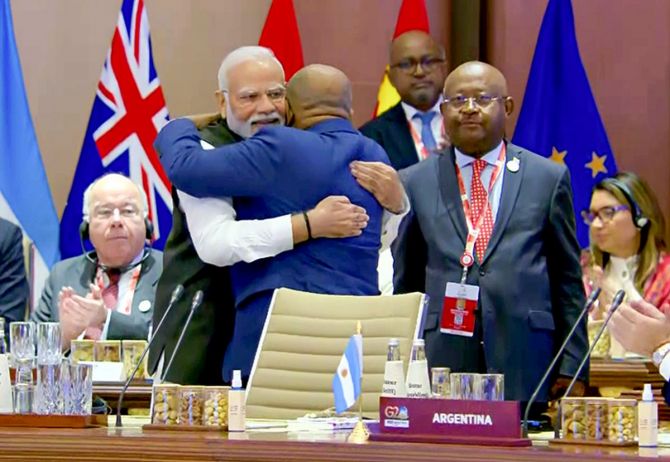Lagos Free Zone will be a catalyst in mining the opportunity presented by African Union’s G20 entry
04 March, 2024
The African Union (AU) recently transitioned from being an ‘invited international organization’ of the G20 to becoming a permanent full status member joining the likes of the European Union, the UK, Russia, and the USA. Prior to AU’s appointment, South Africa was the only permanent African country member of the G20 bloc. This admission of the AU to the G20 reflects Africa’s growing influence and importance on the global stage. It’s worth noting that while African leaders work to increase access to their markets, the private sector such as the likes of Lagos Free Zone – the first private special economic zone in Nigeria, are committed to amplifying the viability of opportunities presented by this new membership.
The inclusion of the AU adds to the might of G20. The Group earlier represented around 85% of the global GDP, 75% of global trade, and two-thirds of the world’s population. AU’s coming on board means the inclusion of a young, resource-rich continent of 1.3 billion people adding to the assets of G20. Africa’s population is projected to reach 2.5 billion by 2050, accounting for a quarter of the world’s population.The continent hosts 48% of the global cobalt reserves and 47.6% of global manganese reserves. Itisalso home to the largest free trade area in the world – the African Continental Free Trade Area (AfCFTA).
AfCFTA, which became operational in January 2021, has brought together 55 countries of the African Union (AU) and eight Regional Economic Communities (RECs). It is estimated to provide a $450 billion income boost to Africa by 2035. It isexpanding intra-African trade and creating new opportunities for investors by providing them access to a region whose spending potential is expected to touch $6.7 billion by 2030.The AU’s membership in the G20 opens numerous opportunities forpartnerships and new ventures to be established on the continent. Within Africa, Nigeria boasts the largest economy and population with unfettered access to regional and international markets; a promising maritime sector; a substantial workforce paired with competitive wage demand; and a policy framework coherent with growth.Over the past few decades, the Nigerian government has paved the way for the private sector by implementing preferential business and tax policies. Many international organizations have invested in the Nigerian economy and are benefiting from these initiatives including Tolaram, promoters of Lagos free Zone.
Established in 2012, Lagos Free Zone is the first private free trade zone in Nigeria. It is centrally located in Lagos, the commercial centre of Nigeria. It sprawls over 850 hectares and is fully equipped with world-class infrastructure including warehouse and ready to lease factories, a single clearance window for ease of doing business, and the 90 hectares Lekki deep seaportThe Lekki Port, with a depth of 16.5 metres, is the only deep sea port in Nigeria. It has the capacity to accommodate large vessels carrying up to 18,000 TEUs.
Lagos Free Zone is purpose built to drive industrialization. It is aself-sustaining industrial hub catering to different sectorssuch as pharmaceuticals, FMCG, non-metallic minerals, engineering, automobile, logistics, chemicals, and downstream petrochemicals.The service ecosystem is robust and designed to support tenants with matters relating to paying taxes, encroachment-free land acquisition, meeting energy needs, registering property, dealing with construction permits, security, healthcare, and others. With its world-class infrastructure, Lagos Free Zone is the premier investment destination in the West African region. The Zone iscurrently fully operational with a total investment commitment of $2.5 billion and over 20 registered companies including the likes of Kellogg (USA), BASF (Germany), Arla (Denmark), Sana Group (Middle East) and CMA CGM (France) to name a few.Setting up a new business at LFZ takes less than two weeks on average.African Development Bank (AfDB) estimates that the Lagos Free Zone and Lekki Port ecosystem will create 700,000 jobs with around 450,000 new residents in the wider Lekki region.
Undoubtedly the Lagos Free Zone is redefining the ease of doing business in Nigeria and presents the ideal entry point for prospective investors interested in the opportunities set in motion by AU’s inclusion in G20.


